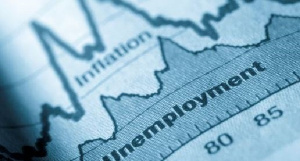 File photo: The AGI is asking for a reduction on the percentage of import levies
File photo: The AGI is asking for a reduction on the percentage of import levies
Unemployment within the manufacturing sector could worsen if the government fails to review the 50 percent reduction in benchmark values for imported goods and the Straight Levy policies, the Association of Ghana Industries (AGI) has said.
In a communique following the recent Ghana Industrial Summit and Exhibition, it said the ability of domestic manufacturers to scale up and create much-needed jobs is seriously undermined by the 50 percent reduction in benchmark values for imported goods and the Straight Levy.
“These have a direct impact on sustainable job creation for our country. Our job creation prospects will continue to diminish if imports continue to take precedence over local manufacturing,” read the communique signed by its Chief Executive Officer, Seth Twum Akwaboah.
The association, whose members are among some of the leading producers in the country, lamented that the two policies, in addition to high electricity tariffs and lack of access to reasonably priced credit, give imported products an upper hand over domestically made ones; and therefore it needs to be relooked at.
“The policy of 50 percent reduction in benchmark values for imported goods and the Straight Levy undermines local production. Government must reconsider these policies to give more meaning to our Industrial Transformation Agenda and export market development for AfCFTA,” the statement said.
It added: “We encourage our regulatory bodies to help prevent Ghana from becoming a dumping ground for sub-standard goods from other countries under the subterfuge of continental free trade.”
While commending the government’s effort toward the resuscitation of local industry, the statement noted that: “We also see the need for our industries to explore the aggregation of exporters, including business partnerships that will augment our capacities for AfCFTA”.
On electricity tariffs, the AGI demanded a reversal of the current tariff regime wherein industry subsidizes residential customers. “The current electricity tariff level does not make the local industry competitive compared to our peers in the sub-region. We think it’s worth exploring less expensive sources of electricity and energy efficiency to become competitive.”
Meanwhile, consistent with the Sustainable Development Goals – Goal 7 (Affordable and Clean Energy), the statement emphasized the need to promote the use of renewable energy and ensure energy efficiency.
Currently, there are no official figures on the unemployment rate in the country; but Statista estimates the rate of joblessness among the total labour force was 4.5 percent in 2020.